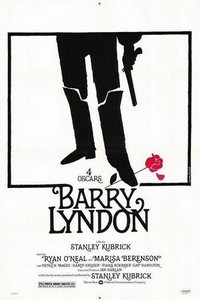
Barry Lyndon (1975)

Raiting: ![]() 8,1 /10
8,1 /10
Genre: War
Director: Stanley Kubrick
Stars: Ryan O'Neal, Marisa Berenson and Patrick Magee
Country: United Kingdom / United States
Release date: 26 November 1975
Length: 184 minutes


Raiting: ![]() 8,1 /10
8,1 /10
Genre: War
Director: Stanley Kubrick
Stars: Ryan O'Neal, Marisa Berenson and Patrick Magee
Country: United Kingdom / United States
Release date: 26 November 1975
Length: 184 minutes